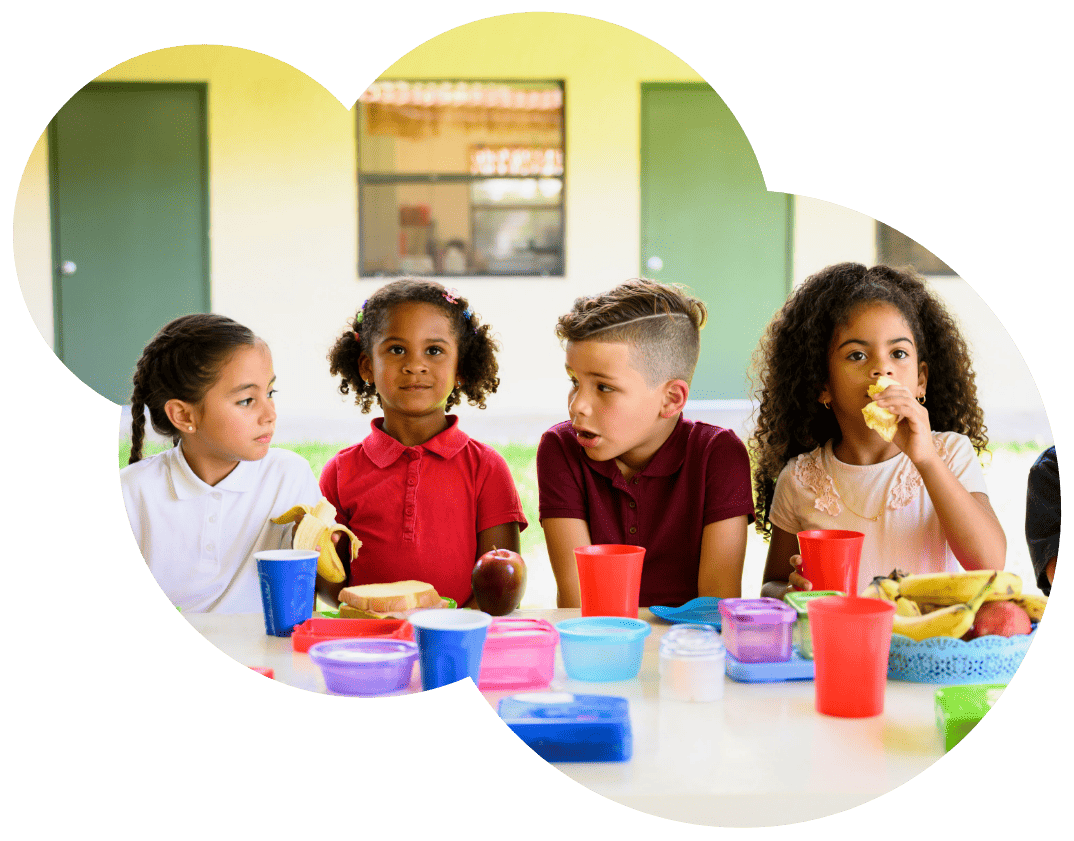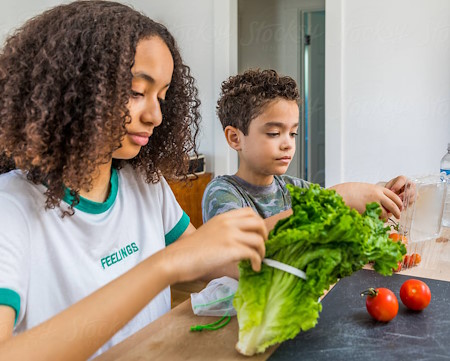Creating Healthy School Food Environments for BC Students


The health of our children and youth is a collective responsibility. Creating a supportive food environment in schools allows students to eat well and helps them develop a positive relationship with food thus contributing to their health. A “healthy school food environment” refers not only to the nutritional value of the food served at school, but the ways in which schools create a culture of care and connection around how food is prepared, served, and eaten. It includes having safe spaces, as well as adequate time to eat and connect with friends.
Creating a healthy school food environment requires patience, persistence, creativity and can foster a positive shift in school food culture. Many schools across the province are already demonstrating that students enjoy nutritious food choices when offered in a supportive and caring way.
The BC School Food Toolkit is a website that was developed to support schools in creating and maintaining healthy school food environments. It includes guidance to support schools in their efforts to provide nutritious foods for students through their Feeding Futures programs.
The BC School Food Toolkit:
The strategies and recipes outlined in the toolkit will support your school’s healthy eating journey, while providing flexible options that acknowledge each school’s unique needs and operational circumstances.
For information on how to start or grow a school food program, please visit the Feeding Futures website.
To learn more about the work under way in the province to increase B.C. foods in schools, visit: Feed BC in K-12 schools.
The Toolkit is not intended for use as:


BC School Food Toolkit sections include:
Are you a school food coordinator looking for ideas and resources for meal planning and food purchasing?
Are you a school administrator looking for resources for meal planning and food purchasing, as well as additional ideas for creating healthy food environments in schools?
Are you an external food provider or vendor wanting to explore how your products can support healthy school food environments?
We gratefully acknowledge that we are carrying out our work throughout the territories of 204 distinct First Nations across B.C. The Ministry of Health acknowledges that its main office is situated on the territories of the Lək ̓ ʷəŋən speaking peoples, the Esquimalt and Songhees Nations.
In this toolkit, we will challenge ourselves and others to consider the ways in which school food environments can act as agents of reconciliation. Taking opportunities to centre Indigenous voices, and celebrating and teaching about Indigenous foods (or foods that have been cultivated, taken care of, harvested, prepared, preserved, shared, or traded within the boundaries of one’s respective territories) is an act of decolonization.
While the process of colonization sought to eliminate Indigenous worldviews, it was unsuccessful. Many Indigenous foodways persist, showing their resilience and relevance in today’s world. In fact, a growing body of scientific evidence is proving what Indigenous Peoples have known all along– that we are all interconnected, and our shared survival depends on this recognition. As uninvited guests, we cannot change what happened in the past, but we do carry the responsibility to move forward in new ways. We can learn to treat nature as a relative, to “eat where we live” and to consider how the decisions we make today impact future generations.
For millennia, Indigenous Peoples have fostered strong and vibrant food systems based on values of interdependency, mutual respect, reciprocity, and ecological stewardship with all their relations (land, air, water, soil and plant, animal and fungi species). Food is a sacred gift of life to be shared and encompasses relationships, cultural values, language, connection to ancestors, health, well-being and identity. As a resource, food has been governed by Indigenous Peoples through Potlatches, Feasts, Big Houses, Longhouses, kitchen parties and gatherings. Grounding school food programs in local cultures and ecosystems revitalizes Indigenous foodways, creates connections for reconciliation and promotes the health and well-being of both Indigenous and non-Indigenous students.
We are very grateful to First Nation Elders and Knowledge Holders, including Jared Qwustenuxun Williams, Nitanis Desjarlais, ‘Cúagilákv (Jess Housty), Andrew George, Kuunaajaad (Jenny Cross) and Tiffany Traverse, as well as Métis Nation BC’s Ministry of Education (Early Learning| K-12) and the South Okanagan Similkameem Métis Association for sharing their time, knowledge, and wisdom to inform this toolkit.

Indigenous Ways of Knowing: Throughout this toolkit we have orange boxes highlighting Indigenous voices and perspectives, to help non-Indigenous peoples build cultural competence, humility and understanding. This will support the creation of culturally safe environments required to make reconciliation possible. We respectfully acknowledge that Indigenous includes First Nations, Inuit and Métis peoples, consisting of distinct communities and Nations with their own unique cultural, historical, political, economic and social structures, and each with distinct rights, interests and practices, including foods and food practices such as harvesting and preparation. As such, the Indigenous Ways of Knowing may not apply to all Indigenous communities and we have tried to acknowledge that in the boxes’ content. We appreciate feedback that may arise as you review these sections that may contribute to our unlearning and learning, as we work towards reconciliation.
Indigenous Knowledge Educator Jared Qwustenuxun Williams shares his vision for Indigenous informed school food programs


Recipe was created by: Serena Caner for Shuswap Food Action Society
 Yield: 50 servings
Yield: 50 servings Serving Size: 160 mL
Serving Size: 160 mL